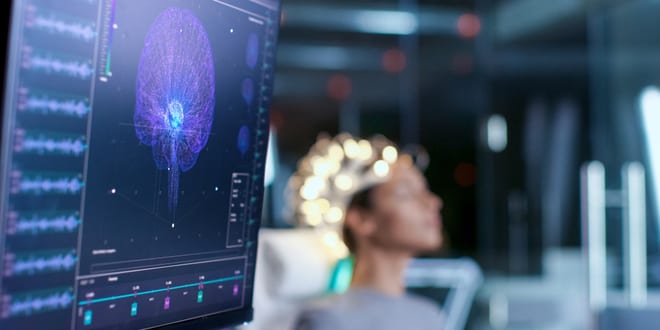The types of challenges posed by youngsters on the autism spectrum are very varies. They include repetitive behaviors; difficulty understanding, talking, reading, writing and following directions; limited interests; problems with social communication and interaction; and extreme sensitivity to certain sounds, smells or textures.
In addition, a large percentage of children with autism have a difficult time falling asleep, or they may wake up frequently in the middle of the night or early in the morning.
A new research study from the National Autism Research Center at Ben-Gurion University of the Negev in Beersheba shows that the brain waves of those on the spectrum are shallower particularly during the first part of the night, indicating difficulty falling into a deep, rejuvenating sleep.
Now that the team has identified the potential physiology underlying these sleep difficulties, they are planning several follow-up studies to discover ways to generate deeper sleep and larger brain waves – from increasing physical activities during the day to behavioral therapies and pharmacological alternatives such as medical cannabis.
The study was just reported in Sleep, the leading journal in the field under the title “Reduced Sleep Pressure in Young Children with Autism.” While the disorder is as yet incurable, the discovery could lead in the future to improved treatments.
Previous studies have shown that 40% to 60% of children with autism have some form of sleep disturbance, which makes life difficult for the youngsters and for their families. Determining what causes these sleep disturbances is a first critical step in finding out how to mitigate them.
A team led by Prof. Ilan Dinstein, who heads the research and is a member of the university’s psychology department, examined the brain activity of 29 children on the spectrum and compared them to 23 children without autism. The children’s brain activity was recorded as they slept during an entire night in the sleep lab at Soroka University Medical Center, which is managed by Prof. Ariel Tarasiuk.
Normal sleep begins with periods of deep sleep that are characterized by high amplitude slow brain waves. The recordings revealed that the brain waves of children with autism are, on average, 25% weaker (shallower) than those of typically developing children, indicating that they have trouble entering deep sleep, which is the most critical aspect of achieving a restful and rejuvenating sleep experience.
“It appears that autistic children – and especially those whose parents reported serious sleep problems – do not tire themselves out enough during the day or develop enough pressure to sleep and don’t sleep as deeply,” said Dinstein. “We also found a clear relationship between the severity of sleep disturbances as reported by the parents and the reduction in sleep depth. Children with more serious sleep issues showed brain activity that indicated more shallow and superficial sleep.”



